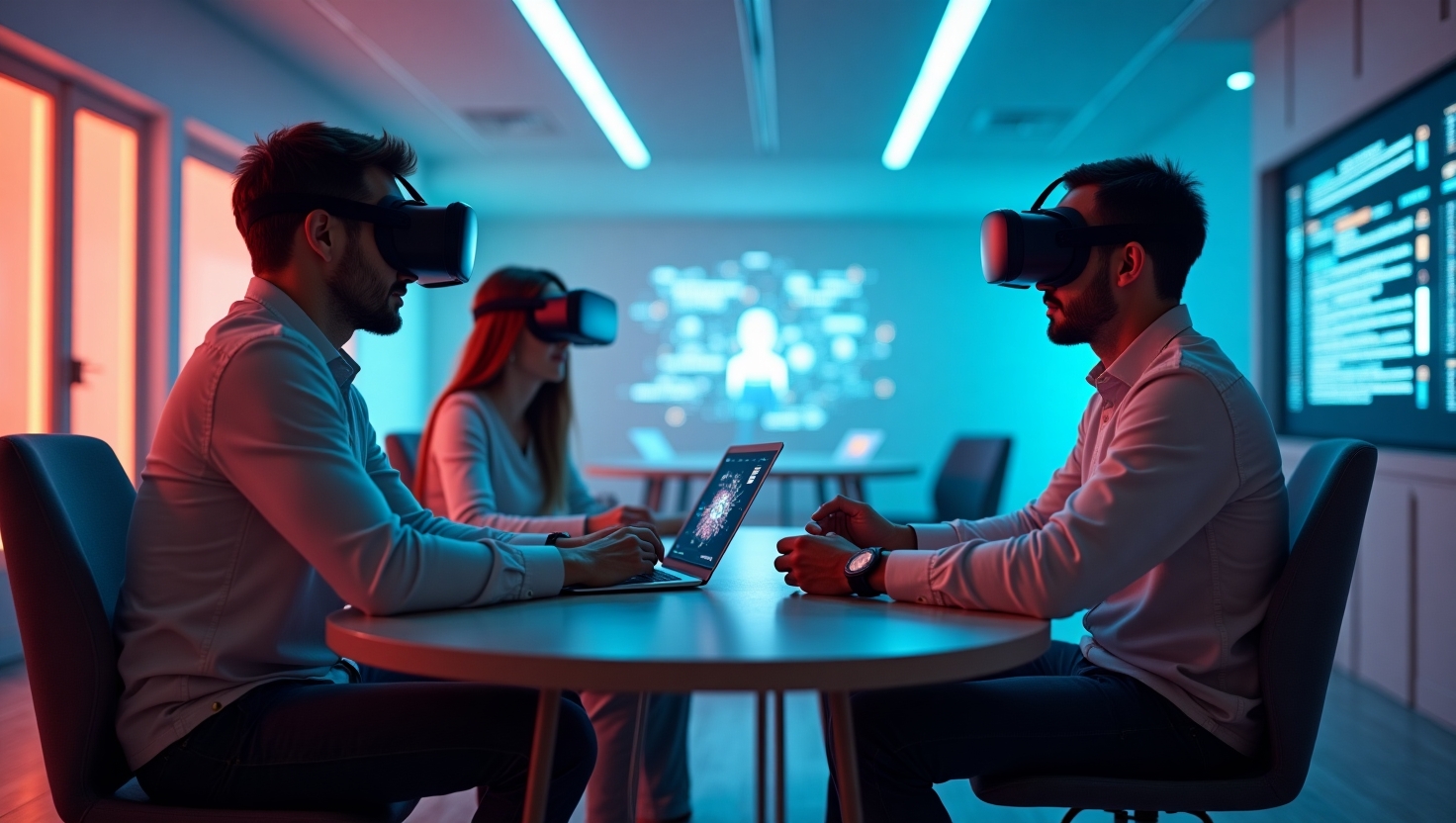AI in the Metaverse: Transforming Workflows for the Future
Introduction
The convergence of artificial intelligence (AI) and the metaverse is not just a technological trend but a transformative approach reshaping productivity across industries. AI in the Metaverse promises to revolutionize how we work, creating seamless and efficient workflows. With Meta, under the stewardship of Mark Zuckerberg, spearheading the integration of AI into everyday operations, the concept is rapidly gaining momentum. This initiative is not just about technological integration but a broader vision of enhancing workplace effectiveness, signaling a pivotal shift in the future of work.
Background
The journey of AI within the metaverse has been marked by rapid evolution. Historically, AI was seen as an emerging, somewhat isolated technology. However, as the metaverse has developed—a virtual space bridging digital and physical realities—AI has become indispensable. Meta, formerly Facebook, has been at the forefront of this evolution, leveraging its vast resources to drive the adoption of AI. Under Zuckerberg‘s leadership, Meta has embraced AI as a fundamental component of its strategy, ultimately aiming to create a fluid, interactive environment where virtual experiences mimic or even enhance real-world interactions.
Emerging Trend
The push towards AI-driven efficiency is underscored by Meta’s ambitious objectives, notably articulated by Vishal Shah, VP of Metaverse. He emphasized the need for a bold approach: \”Metaverse AI4P: Think 5X, not 5%.\” This statement reflects a significant shift in focus—from incremental improvements to exponential workplace enhancements. The company’s strategy is clear: integrate AI technologies to enhance employee productivity manifold. According to Wired, while AI adoption might appear challenging, the potential gains—faster problem-solving, personalized user experiences, and automated mundane tasks—could redefine productivity standards.
Insights on AI Workflows
AI’s potential to revolutionize workflows in the metaverse extends beyond engineering departments. As in the early corporate adoption of personal computers, where secretaries and executives alike needed to understand and use digital tools, the implementation of AI necessitates widespread training and development. AI tools can automate routine tasks, enhance creative processes through data-driven insights, and facilitate decision-making with predictive analytics. Meta’s proposition is not merely a technological enhancement but an overhaul of conventional work structures, ensuring every employee can leverage AI to optimize their specific workflows.
Future of Work in the Metaverse
The integration of AI into the metaverse forecasts a future where tasks are not just faster but smarter. The implications are profound—similar to the industrial revolution’s impact on manufacturing, AI could dramatically increase the productivity metrics within digital workspaces. Meta’s confident expectation is that \”80 percent of Metaverse employees will have integrated AI into their daily work routines by the end of this year.\” This level of adoption could lead to a paradigm shift in how work is perceived and executed, filtering through to the broader industry landscape. Organizations that embrace this change early could position themselves ahead of competitors still navigating traditional frameworks.
Call to Action (CTA)
As the potential of AI in the Metaverse becomes increasingly evident, now is the time for businesses and individuals alike to embrace these tools. Delve into the plethora of AI resources available and explore how they might enhance your own workflows. For those keen to stay ahead of the curve, integrating AI into daily practices could prove indispensable.
Visit Wired for further insights about Meta’s initiatives in the metaverse. For those interested in a deeper dive into the topic, consider reading related articles about AI’s transformative impact on workplace productivity.
In a world where digital interaction continuously evolves, leveraging AI within the metaverse is more than an innovative step; it’s the future of productivity. Embrace these tools now and prepare for a future where workflows are not just better but fundamentally reimagined.
